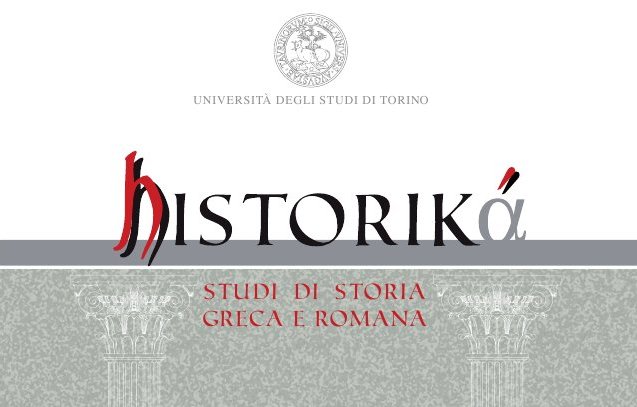L'indispensabile utilità dell'impero e la crisi democratica di Atene antica
DOI:
https://doi.org/10.13135/2039-4985/1776Abstract
L’egemonia e l’impero di Atene, la loro fine a seguito della sconfitta nella guerra del Peloponneso sono temi storiografici molto dibattuti. Due aspetti di questa questione storica e, allo stesso tempo, storiografica sono analizzati: il primo riguarda le rappresentazioni di questo impero e della sua fine in Isocrate, testimone di una tradizione storiografica consolidata, condivisa dall’opinione pubblica ateniese; il secondo concerne alcune famose pagine tucididee che denunciano gli intrecci osservabili fra demokratia e arché, fra la pratica costante dell’isonomia e del confronto assembleare e il dominio, anche violento, sugli altri, infine fra la crisi democratica e la fine dell’impero, che nel caso di Atene coincidono in un complesso sviluppo storico nel quale non è facilmente individuabile il rapporto di causa-effetto fra questi due elementi.
The hegemony and empire of Athens, their end as a result of the defeat in the Peloponnesian War are much debated historiographical issues. Two aspects of this historical and, at the same time, historiographical issue are analysed: the first concerns the representations of this empire and its end in Isocrates, a witness to a well-established historiographical tradition, shared from the Athenian public opinion; the second concerns some famous pages by Thucydides, denouncing the observable plots between demokratia and arché, between the constant practice of isonomia and of the debate in the assembly and the even violent sway, and finally between the democratic crisis and the end of the empire: in the case of Athens these two elements coincide in a complex historical development and it is not easy to identify the cause-effect relationship between them.
Downloads
Published
Issue
Section
License
The authors who publish in this magazine accept the following conditions:
a) The authors retain the rights to their work and assign the right of first publication of the work to the magazine, simultaneously licensed under a Creative Commons License - Attribution that allows others to share the work indicating intellectual authorship and the first publication in this magazine.
b) Authors may adhere to other non-exclusive license agreements for the distribution of the version of the published work (e.g. deposit it in an institutional archive or publish it in a monograph), provided that the first publication has taken place in this magazine.


 The journal has been approved for inclusion in DOAJ. The DOAJ listing of the journal is available at
The journal has been approved for inclusion in DOAJ. The DOAJ listing of the journal is available at 
